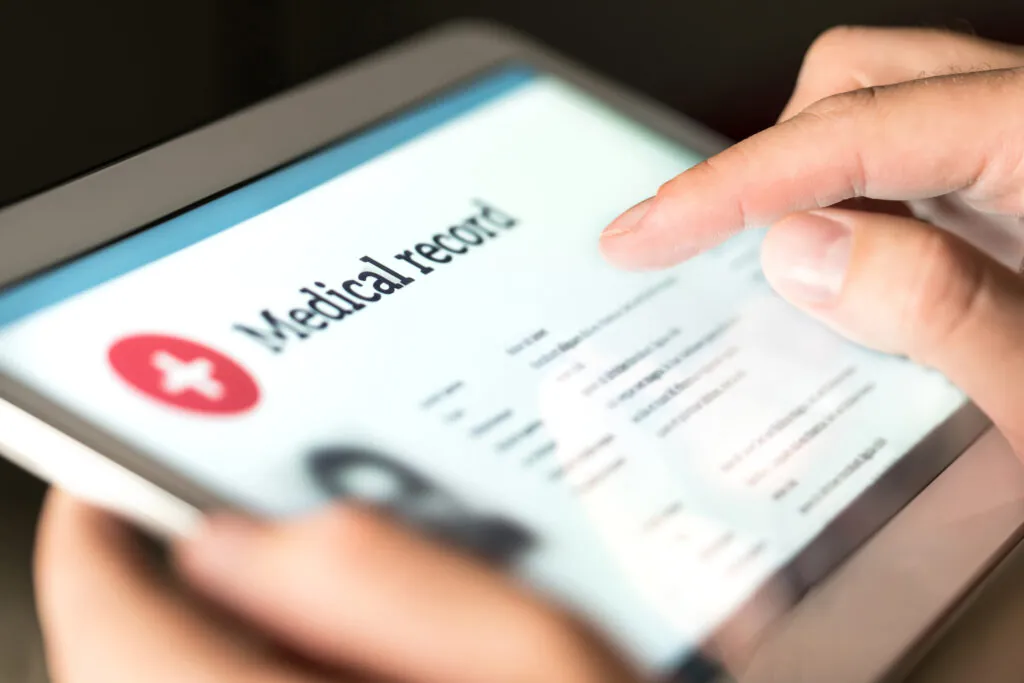How Electronic Health Records Influence Medical Malpractice Cases in Florida
Can EHRs Strengthen Your Florida Medical Malpractice Case?
Electronic Health Records (EHRs) have revolutionized the healthcare industry by transitioning from paper-based systems to digital formats. These digital records streamline the storage and retrieval of patient information, ensuring that healthcare providers have immediate access to a patient’s medical history, treatment plans, and laboratory results. In Florida, the adoption of EHRs has been widespread, driven by the promise of enhanced patient care, improved efficiency, and reduced errors.
However, the integration of EHRs into healthcare practices has also introduced new challenges, particularly in the realm of medical malpractice. The digitization of health records has created both opportunities and pitfalls in medical malpractice litigation. Understanding how EHRs influence these cases is crucial for healthcare providers, legal professionals, and patients alike.
Legal Framework Governing EHRs in Florida
In Florida, the use of EHRs is governed by a combination of state and federal laws designed to protect patient privacy and ensure the integrity of medical records. Key regulations include the Health Insurance Portability and Accountability Act (HIPAA), which sets national standards for the protection of health information, and the Health Information Technology for Economic and Clinical Health (HITECH) Act, which promotes the adoption and meaningful use of health information technology.
State Laws and Regulations
Florida law also imposes specific requirements on healthcare providers regarding the maintenance and accessibility of medical records. These regulations mandate that records be kept in a manner that ensures their accuracy, confidentiality, and accessibility. Non-compliance with these standards can have significant legal ramifications, especially in the context of medical malpractice claims.
Impact of EHRs on Medical Malpractice Claims
EHRs play a critical role in medical malpractice claims, influencing both the defense and prosecution of such cases. The digital nature of EHRs means that every entry, modification, and access is timestamped, creating a detailed audit trail. This can be beneficial in establishing timelines and verifying the accuracy of medical interventions.
Challenges with EHR Systems
However, the complexity of EHR systems can also give rise to several issues. For instance, software glitches, user errors, and interoperability problems between different EHR systems can lead to incomplete or inaccurate records. In medical malpractice cases, these discrepancies can complicate the determination of whether the standard of care was met.
Potential for Alterations
Another significant challenge is the potential for EHRs to be altered or tampered with, either intentionally or unintentionally. Such alterations can impact the credibility of the records and complicate the litigation process. Legal professionals must therefore be adept at navigating the intricacies of EHR data to uncover the truth.
Case Studies and Examples
Several notable cases in Florida highlight the impact of EHRs on medical malpractice litigation. In one instance, a patient’s EHR contained conflicting information about medication allergies, leading to a severe allergic reaction. The ensuing lawsuit centered on whether the healthcare provider had adhered to proper EHR protocols and whether the EHR system itself was at fault for the error.
Misdiagnosis Case
Another case involved a misdiagnosis resulting from a clinician’s reliance on outdated information in the EHR. The patient’s condition worsened, leading to a malpractice claim that scrutinized the timeliness and accuracy of the EHR updates.
Lessons Learned
These examples underscore the importance of proper EHR management and the potential legal consequences of EHR-related errors. They also illustrate how EHRs can serve as both evidence for and against healthcare providers in malpractice cases.
Best Practices for Healthcare Providers
To mitigate the risks associated with EHRs, healthcare providers must adopt best practices that ensure the accuracy, security, and reliability of digital records. Here are some key recommendations:
Comprehensive Training
Ensure that all staff members are thoroughly trained in using the EHR system. This includes understanding how to input data accurately, update records in real-time, and utilize system features effectively.
Regular Audits
Conduct regular audits of EHR entries to identify and correct any discrepancies. This proactive approach can help prevent errors from escalating into legal issues.
Data Security
Implement robust security measures to protect EHRs from unauthorized access or tampering. This includes encryption, access controls, and regular security assessments.
Clear Documentation
Maintain clear and detailed documentation of all patient interactions, treatments, and decisions. This can provide critical evidence in the event of a malpractice claim.
Legal Compliance
Stay informed about the latest legal requirements and ensure that the EHR system complies with all relevant laws and regulations. Consulting with legal experts, such as those at Rafferty Domnick Cunningham & Yaffa, can help healthcare providers navigate these complexities and avoid legal pitfalls.
Contact Rafferty Domnick Cunningham & Yaffa Today
Electronic Health Records have undeniably transformed the healthcare landscape in Florida, offering numerous benefits in terms of efficiency and patient care. However, they also present unique challenges in the context of medical malpractice litigation. By understanding the legal framework governing EHRs, recognizing the potential impacts on malpractice claims, and adopting best practices, healthcare providers can better navigate the complexities of EHR usage and minimize legal risks.
Rafferty Domnick Cunningham & Yaffa remains committed to providing expert legal guidance to healthcare providers, helping them understand and mitigate the legal implications of EHRs. With the right approach, the benefits of EHRs can be fully realized while safeguarding against potential legal challenges. Reach out to us at 561-516-5168 or book a consultation online to schedule a consultation and learn more about how we can assist you.



